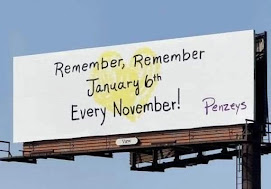David Pakman is quite right when he says, "If Robert Lang were a Muslim, everyone in America would know his name."
So why can't we go after these Christian fanatics?
Better late than never, in most things.
 by Joe Nocera
by Joe Nocera 
My first thought upon finishing the report was: I need to meet this guy. So, a few weeks ago, I did.
In person, Wilmers does not immediately strike one as a rabble-rouser. At 77, he is soft-spoken, a bit reticent, and almost excessively polite. “I personally believe that there isn’t a more honorable profession than the banking industry,” he began. “Most bankers are very involved in their communities, and they can stand up and be counted. I saw a poll recently,” he continued, “that showed we are now considered the third worst profession. That bothers me.”
On the other hand, it didn’t exactly surprise him. In the run-up to the financial crisis, the giant national banks — which he viewed as a distinct species from the typical American bank — had done things that deserved condemnation. And, he added, “They are still doing things that I don’t think are very good.”
Such as? “It has become a virtual casino,” he replied. “To me, banks exist for people to keep their liquid income, and also to finance trade and commerce.” Yet the six largest holding companies, which made a combined $75 billion last year, had $56 billion in trading revenues. “If you assume, as I do, that trading revenues go straight to the bottom line, that means that trading, not lending, is how they make most of their money,” he said.
This was a problem for several reasons. First, it meant that banks were taking excessive risks that were never really envisioned when the government began insuring deposits — and became, in effect, the backstop for the banking industry. Second, bank C.E.O.’s were being compensated in no small part on their trading profits — which gave them every incentive to keep taking those excessive risks. Indeed, in 2007, the chief executives of the Too Big to Fail Banks made, on average, $26 million, according to Wilmers — more than double the compensation of the top nonbank Fortune 500 executives. (Wilmers made around $2 million last year.)
Finally — and this is what particularly galled him — trading derivatives and other securities really had nothing to do with the underlying purpose of banking. He told me that he thought the Glass-Steagall Act — the Depression-era law that separated commercial and investment banks — should never have been abolished and that derivates need to be brought under government control. “It doesn’t need to be studied for two years,” he said. “I would put derivative trading in a subsidiary and tax it at a higher rate. If they fail, they fail.”
As Wilmers continued on in this vein, I found myself nodding in agreement. I also couldn’t help thinking back on remarks I’d heard Jamie Dimon give at a recent Chamber of Commerce event. Dimon, who made more than $20 million last year at JPMorgan Chase, is widely viewed as the best of the big bank chief executives. But he’s also become the most vocal defender of the status quo. “To people who say the system would be safer with smaller banks doing traditional banking, well, the system would be safer if we also went back to horse and buggies,” he told the Chamber audience. “That is a quaint notion that won’t work in the real world.”
At the M&T annual meeting earlier this year, Wilmers told the company’s shareholders that the bank’s mission was to “find ways to continue to attract deposits, make sound loans and grow in accordance with our historic credit quality standards.”
How quaint, indeed. And how refreshing.
 A: I think it's dramatically different, a night-and-day difference. (In the 1980s) we had an economy that was encouraging and beckoning to entrepreneurs. I think we have an economy today that's on the edge of insolvency. We'll be dealing with an age of sacrifice, austerity and an age of pain. You have to stop pretending that we're in a normal business cycle.
A: I think it's dramatically different, a night-and-day difference. (In the 1980s) we had an economy that was encouraging and beckoning to entrepreneurs. I think we have an economy today that's on the edge of insolvency. We'll be dealing with an age of sacrifice, austerity and an age of pain. You have to stop pretending that we're in a normal business cycle.#2. “Richard Nixon is a no good, lying bastard. He can lie out of both sides of his mouth at the same time, and if he ever caught himself telling the truth, he’d lie just to keep his hand in.”
#3. “A bureaucrat is a Democrat who holds some office that a Republican wants.”
#4. “Republicans don’t like people who talk about depressions. You can hardly blame them for that. You remember the old saying: Don’t talk about rope in the house where somebody has been hanged.”
#5. “It's an old political trick: "If you can't convince 'em, confuse 'em." But this time it won't work.”
#6. “A leader in the Democratic Party is a boss, in the Republican Party he is a leader.”
#7. "Carry the battle to them, don't let them bring it to you. Put them on the defensive and don't ever apologize for anything."
#8. "When a fellow tells me he's bipartisan, I know he's going to vote against me."
#9. "Republicans approve of the American farmer, but they are willing to help him go broke. They stand four-square for the American home--but not for housing. They are strong for labor--but they are stronger for restricting labor's rights. They favor minimum wage--the smaller the minimum wage the better. They endorse educational opportunity for all--but they won't spend money for teachers or for schools. They think modern medical care and hospitals are fine--for people who can afford them. They consider electrical power a great blessing--but only when the private power companies get their rake-off. They think American standard of living is a fine thing--so long as it doesn't spread to all the people. And they admire the Government of the United States so much that they would like to buy it."
#10. “The Republicans … will try to make people believe that everything the Government has done for the country is socialism. They will go to the people and say: "Did you see that social security check you received the other day—you thought that was good for you, didn't you? That's just too bad! That's nothing in the world but socialism. Did you see that new flood control dam the Government is building over there for the protection of your property? Sorry—that's awful socialism! That new hospital that they are building is socialism. Price supports, more socialism for the farmers! Minimum wage laws? Socialism for labor! Socialism is bad for you, my friend. Everybody knows that. And here you are, with your new car, and your home, and better opportunities for the kids, and a television set—you are just surrounded by socialism! Now the Republicans say, ‘That's a terrible thing, my friend, and the only way out of this sinkhole of socialism is to vote for the Republican ticket.’"
Original.

You don’t have to make up your mind right now, because there are no missions planned or even on the horizon. But when the idea of a one-way ticket to Mars was first broached last year in a cosmology journal, the response was rather overwhelming: More than 1,000 people said they’d be eager to go.
It was not proposed as a suicide mission, although the chances of a long life on Mars probably aren’t great. Rather, it was pitched as what would potentially be the greatest scientific adventure and exploration of all time.
The idea was floated by two scientists, Paul Davies of Arizona State University and Dirk Schulze-Makuch of the University of Washington, in an article in the Journal of Cosmology. One of the journal’s editors, Ron Becker, said that as the hundreds of e-mails flowed in from prospective Mars explorers, the initial reaction of both researchers and journal staff was to dismiss them as not serious. But that changed as it became apparent that many of the correspondents were quite sincere.
“Our initial goal was to find a way to develop a human mission to Mars that could actually take place, that wouldn’t cost so much that it would be impossible to pull off,” Davies said. “And the one-way trip, as we costed it out, would be about one-quarter the price of a there-and-back mission.”“But the response told us the spirit of exploration remains alive around the globe and that some people understand that the science involved would be extraordinary,” he said. “Just like with earlier explorers, they are prepared to set out knowing they won’t come back, but willing to do it because their time on Mars would be so remarkable.”
The idea, which is clearly not what NASA managers have in mind for Mars exploration, has now led to the release of “A One Way Mission to Mars: Colonizing the Red Planet,” a compilation of articles from the Journal of Cosmology, plus some additions from scientists with the Mars Society and others.
Among the articles in the book are “The Search for Life on Mars,” “Medical Care for a Martian Transit Mission and Extended Stay on the Martian Surface” and “Sex on Mars: Pregnancy, Fetal Development and Sex in Outer Space.” The authors include dozens of NASA researchers, some former astronauts and some scientists and advocates who have pushed for decades (with no success) for a human mission to Mars.
The whole effort, authors say, is geared to sparking public interest in a human mission to Mars, something long discussed by NASA and others but receding into the distance with diminished NASA budgets expected in the years ahead. With that dynamic in mind, the book’s authors say they are looking to the burgeoning private space industry as the ticket to the Red Planet.
Schulze-Makuch said the idea would be to start a colony on Mars, not simply to send astronauts there and abandon them. He imagines them living in the shelter of a lava tube or some habitat they take with them, and imagines that a stream of others would follow. Robotic exploration has shown there is substantial water ice below the Martian surface, so many of the ingredients for survival are present.
“Yes, these people will be isolated and, yes, they will probably die sooner than they otherwise would,” he said. “But they would have all of society behind them, and their time on Mars would be unlike anything experienced before. Thinking more about it, I’m not surprised so many people came forward to volunteer.”
‘Why not?’
NASA officials were reluctant to discuss the idea, which goes very much against the grain of the agency’s idea of human exploration in space. But in a statement earlier this year, NASA officials responded to the Journal of Cosmology articles by saying: “Mars is not the current focus for NASA’s human exploration efforts but it is our ultimate goal. Last April, President Obama informed NASA in a speech that the agency would be sending astronauts to an asteroid by 2025. The President also said that he ‘believed by the mid-2030s that we could send humans to orbit Mars and safely return them to Earth. And that a Mars landing would soon follow.’
“So the President is not considering one-way trips to Mars and neither is NASA. We want our astronauts to safely return home to Earth.”
Elon Musk, founder of the private rocket company SpaceX and a great advocate of Mars exploration, also demurred. He said that a one-way trip is inconsistent with his idea of building a fleet of spaceships that would one day take not a handful but thousands of people to colonize Mars.
But as a thought experiment and a challenge to how human exploration of space is now conducted, the proposal has found some traction. Not necessarily much financial support, but some strong feelings among the public.
The initial volunteers are a broad range of people — old and young, male and female, military and civilians.
Jeff Lane, for instance, is 45 and a police officer in Youngstown, Ohio. He said that his kids would be grown by the time any Mars mission would be ready and that the mission would need some kind of law enforcer on the flight.
“Growing up, I watched the moon shots and shuttle missions and would have loved to have been a part of it. Never came to be, so I thought I would volunteer. Strange for some people to think that way but why not? I’m gonna die, right? So why not die doing something really cool?” he said.
Jessica Sloan of Rosslyn, a 27-year-old business developer for nonprofits, said in an e-mail that she was always fascinated by space and admired “good old- fashioned American frontierism.”
“My great-grandfather came to the United States in the cargo hold of a Russian ship and slept in a bathtub in New York City,” she said. “He, like so many others before, left his home to start a new life in an unknown land. I’m not saying that I think Mars is the promised land or that I’m fleeing any great adversity. But space really is the ‘final frontier’ and perhaps humanity’s last great adventure.”
Paul Gregerson of Clarno, Wis., is a 61-year-old former Marine, now a clergyman in the United Methodist Church. He said that mental health is important in such an endeavor and qualified caregivers would need to come along.
“I feel that spiritual advisers would also be necessary,” he said in an e-mail. “That would be where I come in, along with my other background experiences as a combat engineer (I doubt we would need the combat part) and administrator. I am a firm believer in a God that created the universe and all that is in it. So where we go, God is already there, and folks of faith will be going.”
The ideal candidate
Given the long lead time for such a mission, Gregerson would no doubt be too advanced in years. But Davies and Schulze-Makuch said that the ideal candidate would not be a young person but rather someone who has had many of the experiences that make up a rich life: marriage, child-rearing, satisfying work, long-term friendships.
The crew would certainly need engineers and a pilot, as well as scientists who could conduct the testing needed to determine if Mars has life. But there would also be room for the kind of eager, disciplined and well-rounded people who don’t get selected to be astronauts, Davies and Schulze-Makuch said.
The trip to Mars would be inherently dangerous, as are many sports, journeys and other nonessential endeavors on Earth, the authors point out. They acknowledge as well that while setting up one small Mars colony would be an enormous and costly undertaking, following up with more would be even more of a stretch.
Yet the authors say it is both important for the long-term survival of humanity to do it and it is in keeping with the most basic nature of human beings.
“The culture has become risk-averse, and creativity and the pioneering spirit get lost in that kind of atmosphere,” Davies said. “This is an opportunity to do something remarkable for science, and we’ve seen many, many people are willing to take up the challenge.”


| F-Scale Number | Intensity Phrase | Wind Speed | Type of Damage Done |
|---|---|---|---|
| F0 | Gale tornado | 40-72 mph | Some damage to chimneys; breaks branches off trees; pushes over shallow-rooted trees; damages sign boards. |
| F1 | Moderate tornado | 73-112 mph | The lower limit is the beginning of hurricane wind speed; peels surface off roofs; mobile homes pushed off foundations or overturned; moving autos pushed off the roads; attached garages may be destroyed. |
| F2 | Significant tornado | 113-157 mph | Considerable damage. Roofs torn off frame houses; mobile homes demolished; boxcars pushed over; large trees snapped or uprooted; light object missiles generated. |
| F3 | Severe tornado | 158-206 mph | Roof and some walls torn off well constructed houses; trains overturned; most trees in fores uprooted |
| F4 | Devastating tornado | 207-260 mph | Well-constructed houses leveled; structures with weak foundations blown off some distance; cars thrown and large missiles generated. |
| F5 | Incredible tornado | 261-318 mph | Strong frame houses lifted off foundations and carried considerable distances to disintegrate; automobile sized missiles fly through the air in excess of 100 meters; trees debarked; steel re-inforced concrete structures badly damaged. |
| F6 | Inconceivable tornado | 319-379 mph | These winds are very unlikely. The small area of damage they might produce would probably not be recognizable along with the mess produced by F4 and F5 wind that would surround the F6 winds. Missiles, such as cars and refrigerators would do serious secondary damage that could not be directly identified as F6 damage. If this level is ever achieved, evidence for it might only be found in some manner of ground swirl pattern, for it may never be identifiable through engineering studies |

 Just when it seemed that all of Washington had lost its values and its connection with the American people, a bolt of hope has arrived. It is the People's Budget put forward by the co-chairs of the 80-member Congressional Progressive Caucus. Their plan is humane, responsible, and most of all sensible, reflecting the true values of the American people and the real needs of the floundering economy. Unlike Paul Ryan's almost absurdly vicious attack on the poor and working class, the People's Budget would close the deficit by raising taxes on the rich, taming health care costs (including a public option), and ending the military spending on wars and wasteful weapons systems.
Just when it seemed that all of Washington had lost its values and its connection with the American people, a bolt of hope has arrived. It is the People's Budget put forward by the co-chairs of the 80-member Congressional Progressive Caucus. Their plan is humane, responsible, and most of all sensible, reflecting the true values of the American people and the real needs of the floundering economy. Unlike Paul Ryan's almost absurdly vicious attack on the poor and working class, the People's Budget would close the deficit by raising taxes on the rich, taming health care costs (including a public option), and ending the military spending on wars and wasteful weapons systems. In the progressive middle is the People's Budget. Like Ryan's plan, the People's Budget would cut the budget deficit to zero by 2021, but would do so in an efficient and fair way. It would close the budget deficit by raising tax rates on the rich and giant corporations, while also curbing military spending and wrestling health care costs under control, partly by introducing a public option. By raising tax revenues to 22.3 percent of GDP by 2021, the People's Budget closes the budget deficit while protecting the poor and promoting needed investments in education, health care, roads, power, energy, and the environment in order to raise America's long-term competitiveness. The People's Budget thereby achieves what Ryan and Obama do not: the combination of fairness, efficiency, and budget balance.
In the progressive middle is the People's Budget. Like Ryan's plan, the People's Budget would cut the budget deficit to zero by 2021, but would do so in an efficient and fair way. It would close the budget deficit by raising tax rates on the rich and giant corporations, while also curbing military spending and wrestling health care costs under control, partly by introducing a public option. By raising tax revenues to 22.3 percent of GDP by 2021, the People's Budget closes the budget deficit while protecting the poor and promoting needed investments in education, health care, roads, power, energy, and the environment in order to raise America's long-term competitiveness. The People's Budget thereby achieves what Ryan and Obama do not: the combination of fairness, efficiency, and budget balance. 
 If you hadn’t already given up hoping the Catholic Church would belatedly awake to the seriousness of the sex abuse scandal that has driven untold numbers of formerly-faithful Catholics from their pews, this should do it for you: A study commissioned by U.S. bishops has concluded that the inability of priests to keep their hands off young boys is not a reflection of anything inherently wrong with the Church itself. It’s all the fault of Woodstock.
If you hadn’t already given up hoping the Catholic Church would belatedly awake to the seriousness of the sex abuse scandal that has driven untold numbers of formerly-faithful Catholics from their pews, this should do it for you: A study commissioned by U.S. bishops has concluded that the inability of priests to keep their hands off young boys is not a reflection of anything inherently wrong with the Church itself. It’s all the fault of Woodstock.As many of you may have figured out, May is National Bike Month and next week will be National Bike Week, May 17-21, which includes National Bike-to-Work Day on Friday, May 21. BikeHouston has set up a nice schedule for organized events that will be going on that week as shown.
May 19 will be Houston’s Ride of Silence at 7PM, which is a national event to remember those who have passed away while cycling. Please attend as we pay our respects to those individuals.
May 20 is the Bike Bash, which will be held at the great St. Arnold Brewery from 6-8PM. Bikes and Beer. Mmm!!
May 21 will be the Ride to City Hall with Mayor Annise Parker at Memorial Park Picnic Loop to City Hall at 7:30am. Please be there at 7:00am to meet up as the ride will leave promptly at 7:00am. (Memorial Drive will be closed to automobile traffic!)
If there are any other local events, you don’t see here or want to get out there, let PedalHouston know! Let’s see as many bikes as we can out there. Also, be safe out there! Use proper judgment and share the road wisely. Keep pedaling.
Sec. 6-31. - Location restrictions for fowl.
Sec. 6-32. - Location restrictions for rabbits and guinea pigs.
Sec. 6-33. - Keeping for commercial purposes.
Sec. 6-34. - Keeping for public showing.
Sec. 6-35. - Limitation on number to be kept.
Sec. 6-36. - Maintenance of premises where kept.
Sec. 6-37. - Keeping guineas prohibited.
Sec. 6-38. - Permit to keep chicken hens.

Sec. 6-31. - Location restrictions for fowl.
It shall be unlawful, except as provided in sections 6-33 and 6-34 of this Code, for any person to keep, possess or maintain in the city any chickens, turkeys, geese, ducks, pea-fowls, or any other bird or fowl, except parakeets, canaries, parrots, cockatoos, macaws or similar size birds, or any pens, enclosures, or other structures in which any such fowl are kept or possessed within 100 feet of any actual residence or habitation of human beings, or within 100 feet of any church, school or hospital, other than the residence of the keeper, possessor or owner of such fowl, such distance of 100 feet to be measured in a straight line from the nearest point of any pen, enclosure, or other such structure in which such fowl are kept to the nearest point of such actual residence or place of human habitation, or church, school or hospital.
(Code 1968, § 6-37 ; Ord. No. 70-1448, § 1, 8-25-70; Ord. No. 99-404, § 2, 4-28-99)
Sec. 6-32. - Location restrictions for rabbits and guinea pigs.
It shall be unlawful, except as provided in section 6-33, for any person to keep, possess or maintain in the city any rabbits or guinea pigs, or any pens, enclosures, hutches, cages or other structures in which any such rabbits or guinea pigs are kept, possessed or maintained, within 100 feet of any actual residence or habitation of human beings, or within 100 feet of any church, school or hospital, other than the residence of the keeper, possessor, or owner of such rabbits or guinea pigs, such distance of 100 feet to be measured in a straight line from the nearest point of any pen, enclosure, hutch, cage or other such structure in which such rabbits or guinea pigs are kept to the nearest point of such actual residence or place of human habitation, or church, school or hospital.
(Code 1968, § 6-38
Sec. 6-33. - Keeping for commercial purposes.
It shall be unlawful for the owner or keeper of any geese, ducks, turkeys, chickens or other domestic fowl or rabbits or guinea pigs, where such fowl or animals are kept for sale or for any purpose other than domestic use or home consumption, to allow such fowl or animals to roam in open pens on the ground; but such owner or keeper may keep such fowl or animals for sale or commercial purposes, provided he keeps such fowl or animals in batteries or coops arranged inside of buildings and kept in a sanitary condition, and he shall remove all droppings from such buildings, batteries or coops at least once each day, and disinfect and deodorize such buildings, batteries or coops at least once each day.
(Code 1968, § 6-39)
Sec. 6-34. - Keeping for public showing.
Notwithstanding anything in this article, it shall be lawful for any person to keep, possess and maintain chickens, turkeys, geese, ducks, pea-fowls, guineas, rabbits and guinea pigs for the purpose of a legitimate showing of such fowl and animals for purely public exhibition, provided the conditions provided in this article are observed.
(Code 1968, § 6-40)

Sec. 6-35. - Limitation on number to be kept.
No more than 30 chickens, or 30 turkeys, or 30 geese, or 30 ducks, or 30 pea-fowls, or 30 rabbits, or 30 guinea pigs, and no more than 40 of any combination of such chickens, turkeys, geese, ducks, pea-fowls, rabbits and guinea pigs shall be kept upon any lot or enclosure of the size of 65 by 125 feet or less. In the event that such fowl or animals are kept in a larger enclosure, the number so kept and maintained may be increased only in the ratio that the above figures of 30 and 40 bear to the increase in the square footage of such larger enclosure.
(Code 1968, § 6-41)
Sec. 6-36. - Maintenance of premises where kept.
(a)
Pens, hutches, or houses or any enclosure in which fowl, rabbits or guinea pigs are kept must be cleaned and disinfected daily, must be limed every two days and must be kept in a clean and sanitary condition at all times.
(b)
Litter and droppings from such fowl, rabbits and guinea pigs must be collected daily and stored in a flytight container and hauled away at intervals of not to exceed seven days. Rabbit and guinea pig hutches must have traps or floors to keep droppings or urine from such animals off the ground.
(Code 1968, § 6-42)
Sec. 6-37. - Keeping guineas prohibited.
It shall be unlawful to keep or maintain within the limits of the city any guinea fowl or guinea hens.
(Code 1968, § 6-43)
Sec. 6-38. - Permit to keep chicken hens.
Notwithstanding anything in this article it shall be lawful for any person who has obtained a permit therefor from the director to keep, possess and maintain no more than seven chicken hens for the purpose of providing such person with fresh unfertilized eggs. A revocable permit therefor may be issued by the director for the keeping of seven or less chicken hens under the following conditions:
(1)
The applicant shall furnish or cause to be furnished to the director written certification from a licensed physician that in the opinion of such physician the applicant has need of fresh unfertilized chicken eggs for serious reasons pertaining to said person's health.
(2)
The director, after inspection by him or his authorized representative, has determined that the premises where the applicant proposes to keep the chicken hens is adequate for the number of chicken hens for which a permit is sought, and that if properly maintained, the keeping of the chicken hens will not create a health hazard or nuisance.
(3)
The permit, if granted, may be revoked upon finding pursuant to a public hearing conducted by the director that the permittee cannot or will not maintain the premises in a sanitary condition or that the permittee has failed to permit inspection by the director of the place where the hens are kept, provided that the permittee shall be given prior notice of the date, time and place of the hearing setting forth the grounds upon which the revocation is based and affording the permittee an opportunity to appear in person or through counsel, present evidence and cross examine witnesses appearing at such hearing.
(Code 1968, § 6-44; Ord. No. 68-308, § 1, 2-27-68; Ord. No. 2010-398, § 6, 6-2-2010)


























